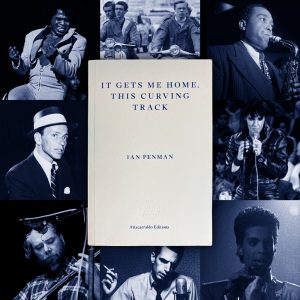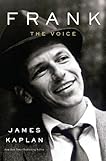Saturday, February 22, 2025
Friday, April 19, 2024
Saturday, April 13, 2024
Thursday, December 21, 2023
Thursday, January 14, 2021
The Important Music for Tosh in 1986
1986 was a mega-year for me. For one, I quit Licorice Pizza and decided to become a European traveler for the rest of my life. Kimley and I left for Europe, thinking that we will never come back - we did, due to financial issues. Still, I remember buying Frank Sinatra cassettes for the trip and that was the background music for this trip. But also I was extremely excited that the film "Absolute Beginners" would open in London, and we were there. One could hear Bowie's theme song to the film all over Europe, as well as the Style Council. For the serious side to me, I loved the David Sylvian double album "Gone to Earth" featuring the guitar talents of Robert Fripp. And always loved a hype band, Sigue Sigue Sputnik's "Flaunt It," which was the album to hate by the masses, but I loved it. If you dig into this year there was some magnificent and important music - but alas, I was on the road, and wasn't aware of these artists, until later. -Tosh Berman
Wednesday, April 1, 2020
BOOK MUSIK 019 - "It Gets Me Home, This Curving Track" by Ian Penman
 Tosh and Kimley discuss It Gets Me Home, This Curving Track by Ian Penman. Penman is a well-established British music journalist who has been writing since the 70s. This book of some of his more recent longform essays covers the mod music scene of the 1960s and seven additional essays on music icons James Brown, Charlie Parker, Frank Sinatra, Elvis Presley, John Fahey, Steely Dan/Donald Fagen and Prince. Penman digs deep and examines the broader cultural context of each of these amazing musicians. This is the book that every smart music junky craves.
Tosh and Kimley discuss It Gets Me Home, This Curving Track by Ian Penman. Penman is a well-established British music journalist who has been writing since the 70s. This book of some of his more recent longform essays covers the mod music scene of the 1960s and seven additional essays on music icons James Brown, Charlie Parker, Frank Sinatra, Elvis Presley, John Fahey, Steely Dan/Donald Fagen and Prince. Penman digs deep and examines the broader cultural context of each of these amazing musicians. This is the book that every smart music junky craves.Tuesday, December 15, 2015
"Sinatra: The Chairman" by James Kaplan
Friday, December 12, 2014
December 12, 2014
December 12, 2014
“I go dreaming into the future, where I see nothing, nothing. I have no plans, no idea, no project, and, what is worse, no ambition.” The emptiness I try to transform it into something of “vague” just so I can see its form in some fashion or another. The fear I have is that I will only see a blank canvas in front of me, and I wouldn’t have the slightest idea how to fill that void. It is not merely the object that’s in front of me, but also what it says about myself. Nothing. When I do die, and I will, I plan to put the Japanese kanji 無 on my tombstone, which means “nothingness. ”
“Go on - but don’t think you can kill my confidence. I’ve had experts doing it for years.” Sometimes that is all I think I have, surely not talent. Asking me as a working writer (ha!) “what I think about critics is like asking a lamp-post what it feels about dogs.” The hardest part in my life is waking up in the morning and facing the day knowing that more likely it will be a form of failure in some way. A British playwright once was quoted as saying “There’s no such thing as failure - just waiting for success.” If that’s the case, I have been waiting for a long time. It is difficult to continue to tell people that you’re working on a project, yet, no one sees it. Therefore it doesn’t exist. Yet, I swear it does exist because it is right here in front of me. What will take courage on my part is realizing that the work won’t change my life, nor my lack of fortune. I will always be at the mercy of kindness - but that is only dished out a few times of the year. The rest of the time is preparing oneself for bed, knowing the next day will bring no fresh fruit, but rotten food to the table.
“I wanted things that I couldn’t at times articulate.” Bread, butter and a piece of fruit - perhaps a glass of wine or two. “Basically, I’m for anything that gets you through the night - be it prayer, tranquilizers or a bottle of Jack Daniels.” I want to travel gently into the night, but the way my world is made-up, it is more likely a series of car accidents. The broken romances, are painful, because they represent a sense of hope - but alas, it turns into someone’s cigarette smoke. As you watch the smoke, it is like a staircase going up to the ceiling, and then noticing it that it will disappear into the air. The point of no return is when I notice that there is nothing in the back of me, and in front, is that void. All my senses tell me to jump ahead and to take the chance that is in front of me. “The one way of tolerating existence is to lose oneself in literature as in a perpetual orgy.” My only hope is that salvation or a series of moments where I will shine. Otherwise it is being grateful for the rotten food on my table.
Sunday, March 11, 2012
Frank Sinatra's "Swing Easy" on Vinyl
Saturday, June 12, 2010
Frank The Voice by James Kaplan
 Frank: The Voice by James Kaplan
Frank: The Voice by James KaplanMy rating: 4 of 5 stars
Along with Buster Keaton, Marcel Duchamp, Howard Hughes, Duke Ellington, Louise Brooks and Fritz Lang, I think Frank Sinatra is an icon of the 20th Century - or in many ways he is the 20th Century. Famous, but still a mystery, and a man who saw things differently then everyone else. James Kaplan, the biographer, sees him as a genius, and if that is true, then he is a man pretty much made up by his inner personality - which is insecurity, doubt, and pure instinct.
The plus side of the book is that it deals with Sinatra from birth to 1954. Professionally speaking, a bumpy ride to end all bumpy rides. He went from being an early teen star to the bottom of the heap, to the top again - but over time he became a great recorder of human emotion via his music.
So the book in ways reads like a fictional narrative where it starts off good, the middle part is despair, and the ending is hopeful for a better future. And all of this pretty much has a strong second character Ava Gardner, the muse, the wife, and demon for Mr. Sinatra. In many ways a perfect couple, in the Sinatra world, but in reality it must have been a total mixture of boredom, total despair, and pure blissfulness all in parts, but never put together like a perfect cocktail drink.
Although the book doesn't cover the entire 1950's, which I consider to be the golden age of Sinatra-life, due to making perhaps the first of a series of conceptual albums with a particular theme for capital Records. Those series of albums are without doubt landmark albums, and they are made to play all the way through from the first song to the last.
So yes, the book ends in 1954, my birth year, and also one can argue the beginning of commercial white Rock n' Roll with respect to Elvis hitting Sun Studios. This decade he would grow as an artist, and yet the doubt lurks in the murky background....
View all my reviews >>
























.jpg)









